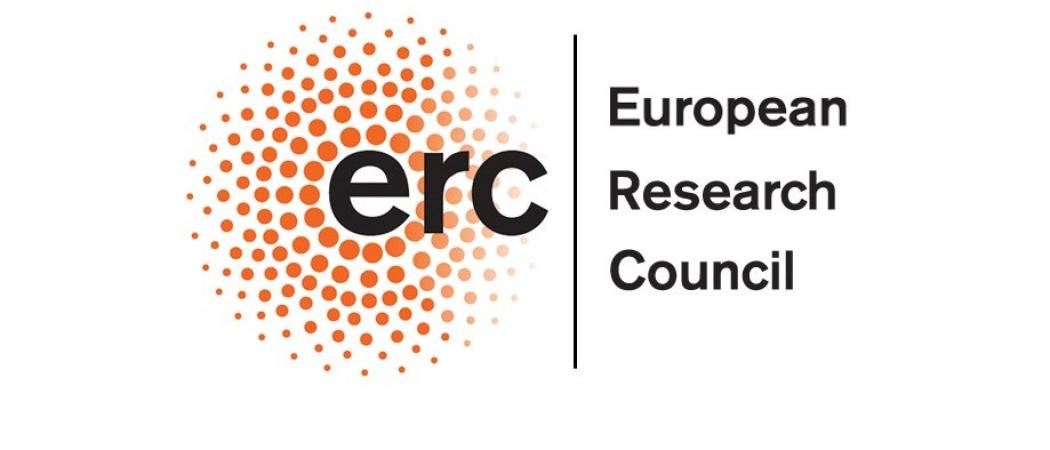Three researchers are to receive ERC Starting Grants from the European Re-search Council (ERC) for their projects at ETH Zurich. These prestigious grants are awarded to talented individuals from around Europe at the start of their ca-reers. The projects are conducted in a variety of research fields.

Three scientists who submitted projects through ETH Zurich have succeeded in the prestigious competition for Starting Grants from the European Research Council (ERC). Each will receive about CHF 1.7 million to conduct their research projects at ETH Zurich, making a total of more than CHF 5.1 million available for the projects.
The three researchers work in the fields of particle physics, landscape and environmental planning, and neuroinformatics. Detlef Günther, Vice President Research and Corporate Relations at ETH Zurich, is particularly pleased with the diversity of the research projects: “These talented individuals succeeded in competing against the top people in their fields across Europe. The wide range of projects that have received the grant also testifies to the breadth and quality of these young scientists.”
Grantees: more female, more international
It should be mentioned that two of the three winning ETH projects were submitted by women researchers. “I am very pleased with the success of these researchers; it shows that highly talented women are able to make it to the top of many fields where this has not always been the case. It also validates our efforts to encourage excellent female researchers to pursue academic careers.” This fact is reflected in the overall outcome as well: more female researchers took part in the latest ERC Starting Grant call than ever before. “Even better, four in ten winners are women,” adds Jean-Pierre Bourguignon, President of the ERC. “This is also a record since the founding of the ERC.” This round was also the most international to date – with Starting Grant winners coming from 48 countries.
High success rate for ETH once again
Of the more than 3,000 applications submitted, 13 percent succeeded this time. Once again, success for ETH was gratifyingly high. Of 20 submissions, 12 – or 60 percent – made it to the second round. Five were given an “A” rating (“excellent”) and thus received grant funding. This is equivalent to a quarter of all ETH projects submitted.
The three projects at a glance:
The Large Hadron Collider (LHC) at CERN is successfully operating at a record-breaking energy and is expected to deliver an enormous dataset of proton-proton collisions in the next 6 years. Lesya Shchutska will take advantage of both the unprecedented collision energy and the large number of events to be recorded in order to search for signs of new particles – Majorana neutrinos – which could uncover the nature of dark matter, provide an explanation for the matter-antimatter asymmetry of the universe or answer questions about the origin of neutrino masses. To achieve this, she will establish and lead a new multisignature research programme at the CMS experiment. This programme will exploit both the intensity and energy frontiers opening up at the LHC and can be further expanded at the high-luminosity LHC (HL-LHC).
Adrienne Grêt-Regamey is Professor of Landscape Planning. In her research, she seeks to understand how interactions between humans and nature shape landscapes. As a way of fostering participatory landscape planning, she investigates how people perceive the landscape in 3D visualisation and auralisation labs. One focus is peri-urban areas – where standardised business centres, single-family residential areas and shopping malls displace fertile agricultural land as well as the culture and lifestyles of local communities. The main goal of her ERC project is to understand whether these homogenised landscapes decrease people’s sense of place and ultimately their motivation to initiate changes. By linking design and land-use modelling, she will develop a collaborative landscape development tool to encourage people to make intentional changes to the landscape as well as to promote novel ways of deliberative decision-making.
Rafael Polania’s research focuses on understanding the neural and computational mechanisms underlying human decision-making. With his ERC grant, the researcher will take decisive steps to provide a neurophysiological characterization of how neural oscillations contribute to cognitive processes such as attention, short-term memory and value-based decision-making. For this purpose, Polania uses computational modelling and electrophysiological measures as well as a new technique for non-invasive manipulations of cortical rhythms. This will result in the applied goal of deriving new neuro-computational assays that can detect deviant network interactions causally related to cognitive functions, which is key for then renormalizing those functions in neuropsychological conditions such as ADHD. Rafael Polania is currently a postdoc at the Department of Economics at the University of Zurich. He will carry out his ERC grant project at ETH Zurich.





 A unique international forum for public research organisations and companies to connect their external engagement with strategic interests around their R&D system.
A unique international forum for public research organisations and companies to connect their external engagement with strategic interests around their R&D system.